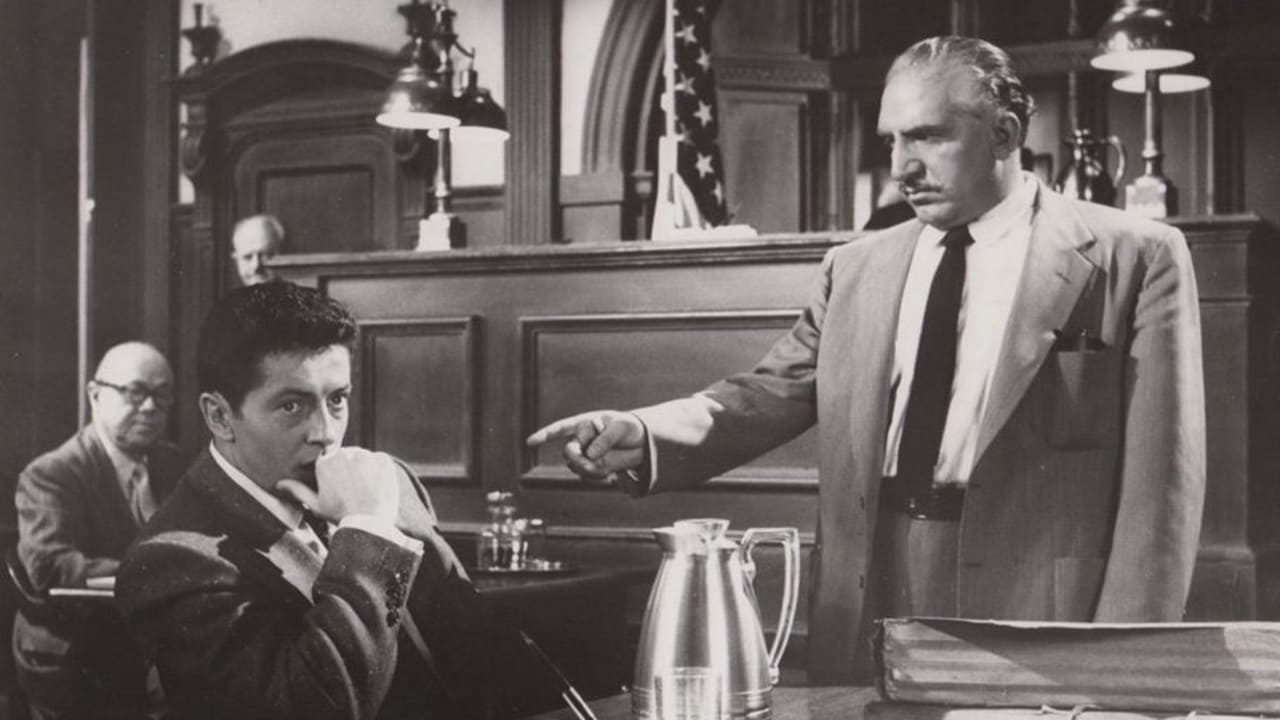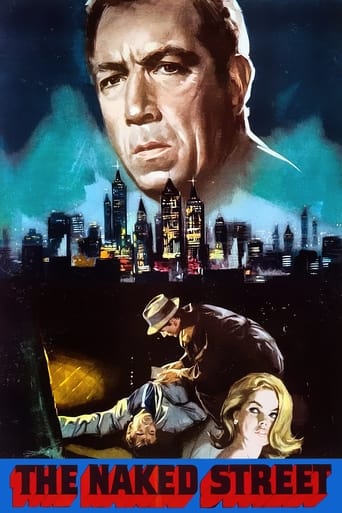

Anthony Quinn was quite good here as a mobster who is overly involved with his family. Through threats, intimidation, corruption and who knows what else, Quinn is able to spring Farley Granger, on death row, for a murder that the latter committed. This showed how corrupt the justice system is and furthermore how he could be manipulated to suit the needs of the guilty.Quinn does this so that Granger can marry the former's sister who is in trouble from the Granger family.The marriage sours and Quinn decides to destroy Granger and the frame ultimately destroys the two men.Anne Bancroft gives a toned down but compelling performance as the sister who finally comes to see what her brother really is all about.
... View MoreMoralizing 50s gritty crime movie. I like the pure noir versions better.Anthony Quinn is a big time gangster he protects and adores his family. His sister gets knocked up by a good looking hood who is on death row. Quinn gets him off on condition he marry his sister and walk the straight and narrow; but Nikki (the hood) doesn't do the straight life well and starts to stray and abuse his wife.Quinn gets rid of him by framing him for murder and gets him the death sentence. But enter a newsreporter who has a thing for the sister and the police get a crack that allow them to go after Quinn.It is OK, I don't like the socially relevant stuff (Quinn's college were the rough streets of Brooklyn) it was the beginning of the PC stuff we are deluged with today.I gave it a 4 for that reason other wise it would have gotten a 6.
... View MoreAnthony Quinn plays a tough mobster named 'Phil Regal'--a guy who has managed to balance his family life and his job. His family really doesn't know exactly what sort of guy he is. All his mother and sister know is that he's the man of the family and his job is to take care of them and be their protector. When his sister (Anne Bancroft) becomes pregnant, Quinn insists on fixing things--which is tough, as the father is a young punk on death row (Farley Granger). Using lots of money and muscle, Quinn manages to get the guy sprung. The only problem is that once Granger marries into the family, he can't keep from screwing up his life--cheating on his lovely wife and getting involved in penny-ante crimes. Now considering what a tough customer Granger's brother-in-law is, Granger obviously is a total moron...and sooner of later Quinn is going to fix this problem...permanently.In addition to this family, another major character in the film is a young Peter Graves. He plays a reporter who went to school with Bancroft and he is investigating Quinn's 'business activities'--and you know sooner or later this will come to a head.This film was far better than I'd expected since it wasn't a very famous example of film noir. Yet, the film is original and very exciting to watch--it's also a nice showcase for Graves, who at this time was a complete unknown in Hollywood. Well scripted and acted, this menacing little film is a treat for anyone who loves the genre.
... View MoreMaxwell Shane's The Naked Street opens with a `torch' murder under the low-rent end of the Brooklyn Bridge; it's a hit ordered by mob boss Anthony Quinn. Quinn finds family problems vying for his attention, however. His kid sister, Ann Bancroft, has been left pregnant by a murderer on death row (Farley Granger, who here could double for Eddie Fisher at about the same time). Quinn intimidates the original witnesses and secures Granger's release in order for him to make an honest woman out of Bancroft.Investigative reporter Peter Graves, meanwhile, is working on an exposé of Quinn's underworld empire. He gets nowhere, however, until Quinn's quick fix of his sister's dilemma starts to unravel. Her baby is still-born (probably due to all the sherry her groom bought her to brighten her confinement), leading Granger to start to womanize and brush up his criminal skills. This only provokes Quinn, who tries to undo his earlier meddling by meddling some more....The Naked Street blows in some high-minded social commentary in an attempt to supply moral uplift to an otherwise gritty crime drama. In that, it keeps step with the fads of the mid- to late-fifties, with many reminders of the `tenement' origins of criminals (despite the fact that, as here, these monsters' mothers are invariably old-country saints). And the plot's ironies, though obvious, hold interest.But Shane, who six years earlier had done the more authentic City Across The River along similar lines, can be a clumsy director. He lets too much of the story get told through Grave's voice-over narration rather than telling it himself, on film. And there are nagging little lapses: there's a phony hijack in which a car runs a truck five times its size off the road; at an illegal all-night poker game in the back room of an ice-cream shop, the neon sign blazes `Millie's' to beckon every cop in the five boroughs. Still, Quinn does well in one of his last `heavy' roles, and early Bancroft offers glimpses of the fame to come. But the puzzle is, what was there in this role tempting enough to lure Granger back from Europe?
... View More